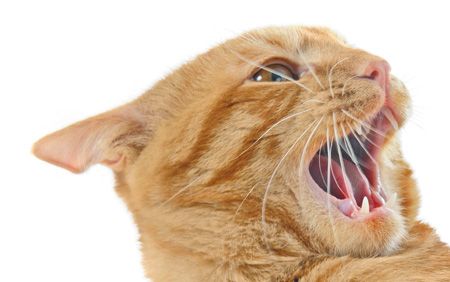Think that cat is fractious? Try freaked out
Your feline patients don't consider themselves predators in your veterinary clinic-they considers themselves the prey. It's time to reframe, not blame.

(Getty Images)Do you think the cat waiting for you in the exam room is aggressive and maybe even label her as being fractious? Margie Scherk, DVM, DABVP (feline), says think again. That cat is scared. At a recent CVC (now Fetch, a dvm360 conference), Dr. Scherk discussed the fact that in the wild cats are predators, yes-but they are also prey. When on the hunt for food themselves, they are just as much aware that they might be the hunted. And they must defend their territory so that they can find a morsel or two. "They have developed a whole lot of self-defensive body language to communicate that another individual-be it a cat or something else-should stay away," Dr. Scherk says. This body language is often misinterpreted as being aggressive when in actuality the cat is anxious and terrified. It's a matter of lunch or death. Hear more from Dr. Scherk about this natural tendency and why to give these scaredy cats some compassion in the exam room.